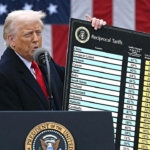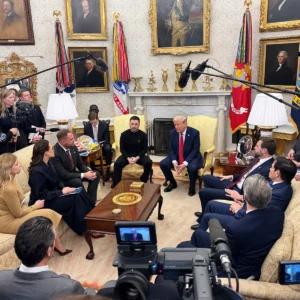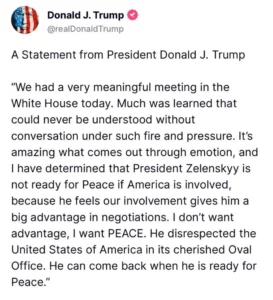How to persuade those not at the table: B2B negotiation strategies

Indice
How many times have you heard someone say, “I’m a direct person, I don’t like beating around the bush”? Or maybe you’ve said it yourself, convinced that brutal honesty is always the best way to close a deal.
Yet, in complex B2B sales, being overly straightforward can cost you dearly. Very dearly.
The difference between a diplomatic approach and one that is “sincere at all costs” often determines whether a contract is signed or negotiations stall for months. And no, I’m not talking about becoming fake or manipulative.
Here’s what happens when honesty takes the lead:
Two colleagues have known each other for years. They work in different departments and have crossed paths on a few projects, meetings, and coffee breaks. One day, one of them confides in the other:
“You may have always seen me as very diplomatic, but in reality, I’m a straightforward, sincere, and direct person. I hope you’ll appreciate it.”
“I am too. So, I’m sure you’ll appreciate my honesty: by the way, I wanted to tell you that you’re a jerk.”
End of conversation. End of professional relationship.
That’s why diplomacy isn’t hypocrisy: it’s a smart strategy. It serves to legitimize differences of opinion, to suspend judgment, and to truly listen to what your interlocutor is trying to communicate.
In complex B2B negotiations, where a seller and buyer represent broader interests than just a simple transaction, the art of diplomacy becomes essential. Because it’s not just about convincing the person in front of you but also helping them convince all their stakeholders: colleagues, superiors, budget managers, and end users.
And this is where many sellers stumble.
The stalemate: when diplomacy fails
To understand what happens when these diplomatic rituals are ignored, let’s look at the meeting between US President Donald Trump and Ukrainian President Volodymyr Zelensky at the White House on February 28, 2025 (full video of the meeting)
Here’s how the diplomatic visit unfolded:
Result? Diplomatic stalemate for weeks (who knows how long it would have continued if there had not been “the occasion” of Pope Francis’ funeral so that they could talk again).
And the stalemate in a commercial negotiation, if it is not exactly the equivalent of a lost sale, can certainly generate problems at the level of operational and financial planning.
In recent weeks, the Oval Office has repeated at least two cases like that of 28 February which makes me think that we are facing a new way of understanding international negotiations, with long-term outcomes all to be observed:
- the May 6 meeting with Canadian President Mark Carney provocatively called “governor” and referring to Canada as the 51st state (here the video);
- the meeting of May 21 with the South African president Cyril Ramaphosa “tried” publicly on the (false) charge of ignoring genocide of Afrikaners (here the video).
Neuroscience shows that memories related to humiliation or social danger activate deep brain structures such as the amygdala and are consolidated more strongly.
The psychology of forgiveness (e.g. Enright, Worthington) suggests that conscious forgiveness can speed up processing times, but it often takes weeks or months to start “letting go” and even years to forget completely.
But I do not believe that Trump and the presidents he has humiliated will go to individual or couple therapy. So, likely the time of negotiations will be extended, although on the contrary probably President Trump hoped that these blatant ways would bring him quickly to the expected result.
The real problem: convince those who are not at the table
You may also have reached an agreement (with a colleague, a collaborator, a manager, a supplier, a customer) with which you were mutually satisfied, but then your counterpart “confronted himself internally” and that idea no longer appeals.
What’s the matter? Even in the presence of diplomatically perfect relations, also between you and your customer/supplier, you will have to manage the consensus on several tables.
And here comes the difficult part of negotiation in B2B, as well as in diplomacy: convince those you do not have on the other side of the table by helping the person with whom you are negotiating to build a consensus on your solution that will be valid even when, left your table, will return to the company to present the agreements made with you.
And this requires a skill that goes beyond sales: it is called systemic negotiation.

A lesson from Thank You for Smoking
The film tells the story of Nick, a tobacco industry lobbyist. His son Joey asks him how he can prove himself right, even when it’s obvious that he is wrong (spoiler: smoking hurts).
Nick responds with an example that paraphrases:
“Imagine you say, ‘Vanilla ice cream is the best’.
And the other answer: ‘No, chocolate is the best’.
If you try to prove that vanilla is objectively superior, you don’t get out of it. But if you say: ‘Everyone must be free to choose the taste they prefer’, then you have changed the discussion. You no longer need to be right: this time you have convinced not him, but all the others who look at you, they are your audience”
Here’s the point: negotiating is not being right; it is building consensus. And to do so, you need method, listening, strategy. And yes, a bit of diplomacy.
For this we must put ourselves at the service of our counterpart and help him to think about how to build the process of consensus in his home: not because all the “buyers” to whom we propose our solutions are less good than us at building consensus, but because in dialogue, In the mutual exploration of internal dynamics is found the way to “make everyone happy” by validating all options.
In this, the negotiation resembles a script to be interpreted, of which we and our counterpart are directors and actors. A script to be interpreted with compulsory passages as are the acts and lines of a piece, but also with “notes in the margin” – unofficial – like those of diplomacy.
The 3 winning strategies for B2B negotiation
Implementing a diplomatic approach in B2B negotiations requires method and strategy. Here are the three most effective techniques that every sales manager should master:
1. Mapping of hidden stakeholders
How to do it: Before any complex negotiation, identify all the decision-makers involved in the buying process, even those who are not sitting at the table. Ask your interlocutor: “Who else will be involved in the evaluation of this proposal?”
Why it works: When you help your clients convince their internal stakeholders, you build trust and reduce last-minute objections. Most B2B sales fail precisely because of the lack of internal consensus.
2. Building long-term relationships
How to do it: Instead of focusing only on the immediate closure, invest time in understanding the client’s strategic goals for the next 2-3 years. Propose solutions that grow with your company.
Why it works: Satisfied customers generate more revenue through upselling and referrals. Diplomatic negotiation today turns into partnership tomorrow.
3. Adherence to the structured sales process
How to do it: Even when the customer seems ready to buy immediately, keep the basic steps: deepen the needs, build a personalized presentation on the customer’s needs, prepare the management of objections, choose the moment in which to enter the negotiation phase.
Why it works: Sales that follow a structured process are more likely to close successfully. Haste is the enemy of diplomacy and complex sales.
Diplomatic negotiation in B2B is not kindness for the sake of it: it is a strategic skill that separates top performers from mediocre sellers. In an increasingly competitive market, the ability to build consensus and maintain lasting relationships becomes the real differentiating factor.
In your next complex negotiation, will you choose the bluntness that alienates or the diplomacy that convinces?
Articolo a cura di:

Alessandro Valdina
Principal
In his university studies there are Communication, Finance and Applied Behavior Analysis. Head of Lenovys' "People & Organization" area, as a management consultant helps organizations achieve safety, quality, production, service and sales goals through measurable improvement in individual and group behaviors. His areas of expertise cover Change Management, Strategy Deployment, Lean Office, Performance Management, Leadership Development and Training Technologies.
Read more












